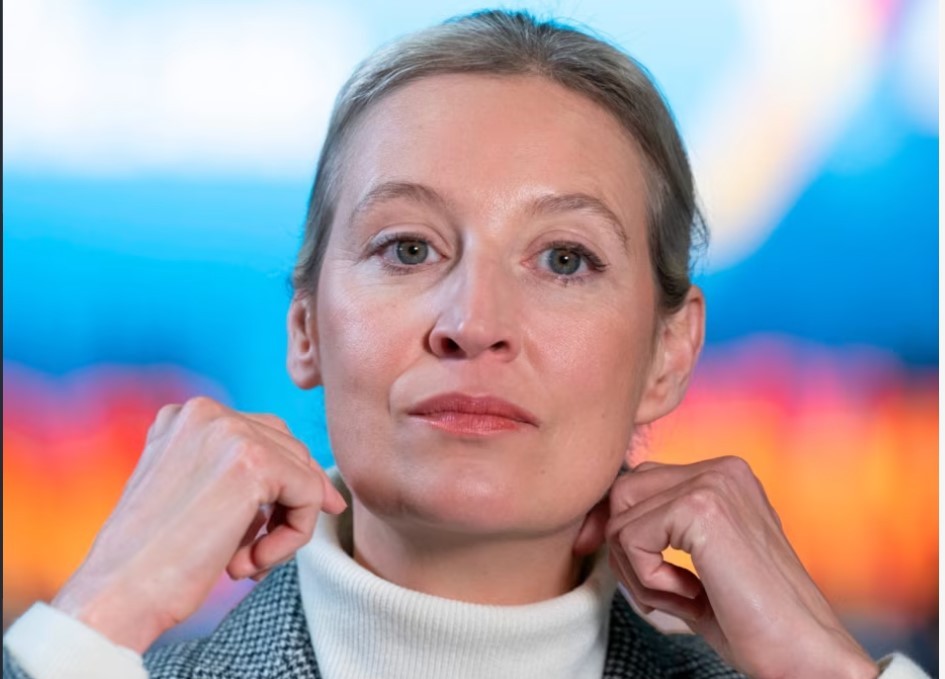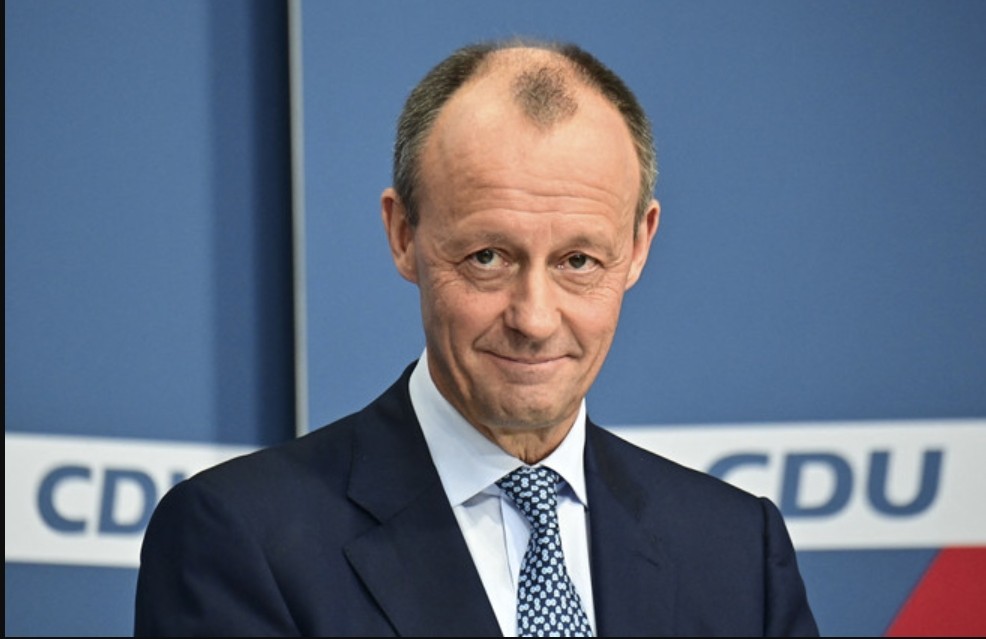Germany Election 2025: Alice Weidel vs Friedrich Merz – Who Will Be the Next Chancellor?
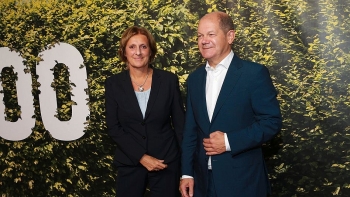 Who is Olaf Scholz: Biography, Love Story, Personal Life and Career Who is Olaf Scholz: Biography, Love Story, Personal Life and Career |
The election is marked by an intense competition between Alice Weidel, the leader of the right-wing Alternative for Germany (AfD), and Friedrich Merz, the head of the conservative Christian Democratic Union (CDU). With new polling data showing unprecedented support for Weidel, the race for the Chancellorship is closer than ever.
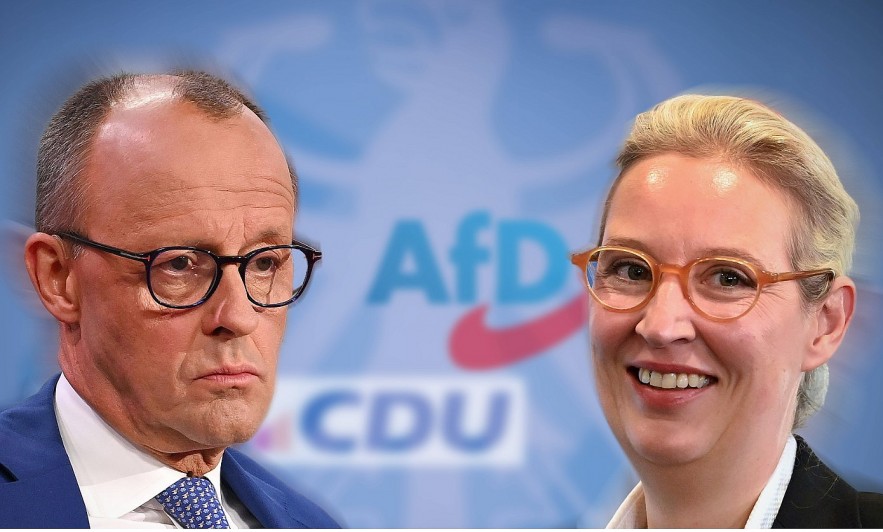 |
| A new poll shows Alice Weidel (right) as the most preferred Chancellor of Germany |
This election follows a snap vote called after Chancellor Olaf Scholz’s coalition government collapsed late last year. Scholz, from the Social Democratic Party (SPD), struggled to maintain unity within the coalition, leading to a loss of parliamentary control and necessitating an early election. The political instability has created a fertile ground for opposition parties, particularly the AfD, to capitalize on public dissatisfaction.
Key issues driving the election include economic concerns, immigration, and law and order, alongside a general sense of discontent with traditional political establishments. The election is seen as a referendum not only on specific policies but also on the broader direction Germany should take amid global economic challenges and geopolitical tensions.
Alice Weidel: The Surging Force of AfD
Alice Weidel, a 46-year-old economist fluent in English and Mandarin, has led the AfD with a blend of populist rhetoric and technocratic competence. Her professional background includes roles at Goldman Sachs and Allianz Global Investors, providing her with a strong economic platform. Since joining AfD in 2013, Weidel has steadily risen through the ranks, becoming a prominent voice for Euroscepticism, strict immigration policies, and a pushback against what she calls “elitist climate policies.”
Under Weidel’s leadership, the AfD has broadened its appeal beyond its traditional base in Eastern Germany, drawing support from voters frustrated with mainstream politics. Recent polling by the Democracy Institute for the Daily Express revealed that 30% of likely voters preferred Weidel as Chancellor, placing her ahead of Merz (25%) and current Chancellor Scholz (18%).
Learn more: Who is Alice Weidel, AfD Leader? Biography, Education, Personal Life, Career, and Political Future
Friedrich Merz: The Conservative Standard-Bearer
On the other side of the political spectrum is Friedrich Merz, the 69-year-old leader of the CDU. Merz, who has worked to steer his party towards a more conservative stance, is focusing heavily on economic reform and immigration control. His approach aims to reclaim voters who have drifted to the AfD while maintaining alliances with more moderate factions within the CDU.
Merz's strategy includes advocating for stricter immigration laws, increased border security, and pro-business policies designed to boost Germany’s economic competitiveness. However, his openness to potentially collaborating with the AfD in parliament has sparked controversy, particularly among more liberal CDU supporters and other mainstream parties.
Learn more: Who is Friedrich Merz? Biography, Education, Family Life, Career Politics, and Net Worth
The Coalition Puzzle
Given Germany's proportional representation system, no single party is expected to secure an outright majority. This makes coalition-building a crucial element of post-election negotiations. While the AfD's rising popularity is undeniable, all major parties except the CDU have categorically ruled out forming a coalition with them due to their far-right positions.
This political isolation could hinder Weidel’s path to the Chancellorship despite her popularity among voters. Conversely, Merz's CDU is better positioned to form a coalition, potentially with the SPD and the Green Party. However, these parties differ significantly on issues like climate policy and social spending, which could lead to protracted negotiations and potential instability in any new government.
Forecast: Who Will Win?
Although Weidel’s rise has been dramatic, the CDU’s broader acceptability among other parties gives Merz a strategic advantage. He is seen as the more likely candidate to succeed Scholz, provided he can navigate coalition talks effectively. Analysts suggest that while AfD might achieve a historic electoral performance, the path to government leadership remains a steep climb due to their political isolation.
Conclusion
The 2025 German election is shaping up to be one of the most consequential in recent history. It highlights a shifting political landscape, where traditional parties face growing pressure from populist movements. Whether it is Alice Weidel or Friedrich Merz who emerges victorious, the new Chancellor will need to address deep-rooted societal divisions and lead Germany through a period of economic and geopolitical uncertainty.
As Germans head to the polls, the world watches closely, recognizing that the outcome will not only define Germany’s future but could also reshape the political dynamics of Europe as a whole.
 20 Most Essential Travel Apps in Germany: Taxi, Public Transportation, Currency And More 20 Most Essential Travel Apps in Germany: Taxi, Public Transportation, Currency And More You have to be on the move all the time if you come to Germany to travel, visit, work, or watch football (Euro 2024 Championship). ... |
 German Calendar with the Public Holidays, Observances And Celebrations German Calendar with the Public Holidays, Observances And Celebrations The 2024–2025–2026 yearly calendar features international events, special days, public holidays, and school vacations for Germany. |
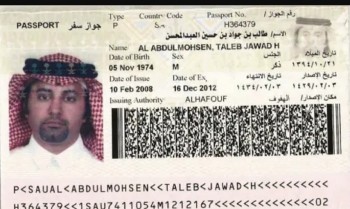 The Man Behind the German Christmas Market Attack: Taleb al-Abdulmohsen doctor of psychiatry, "Lone Wolf"! The Man Behind the German Christmas Market Attack: Taleb al-Abdulmohsen doctor of psychiatry, "Lone Wolf"! The man behind the shocking Christmas market car attack in Magdeburg as Taleb al-Abdulmohsen, a doctor of psychiatry from Saudi Arabia. |
 Top 10 Best Hospitals In Germany of 2025 Top 10 Best Hospitals In Germany of 2025 You should be aware of these ten German hospitals that take patients from abroad. Taking them into account could assist you in selecting a competent ... |

